After losing much of their business to COVID-19 restaurant closures, the owners of Clay Bottom Farm in Goshen, Indiana, didn’t flinch.
During the last several years, Ben Hartman and Rachel Hershberger have streamlined their farm operations based on the “lean” philosophy that originated with the Toyota car company and spread to businesses around the globe, including Amazon. Now, they credit lean techniques with saving their farm when the pandemic hit.
“Immediately, overnight, we lost most of our business,” Hartman said. “We used lean tools and lean thinking and very quickly reinvented our business.”
Instead of relying on restaurant sales for 80% of their business, Hartman and Hershberger decided to expand their Community Supported Agriculture, or CSA, and offer contact-free delivery of their food.
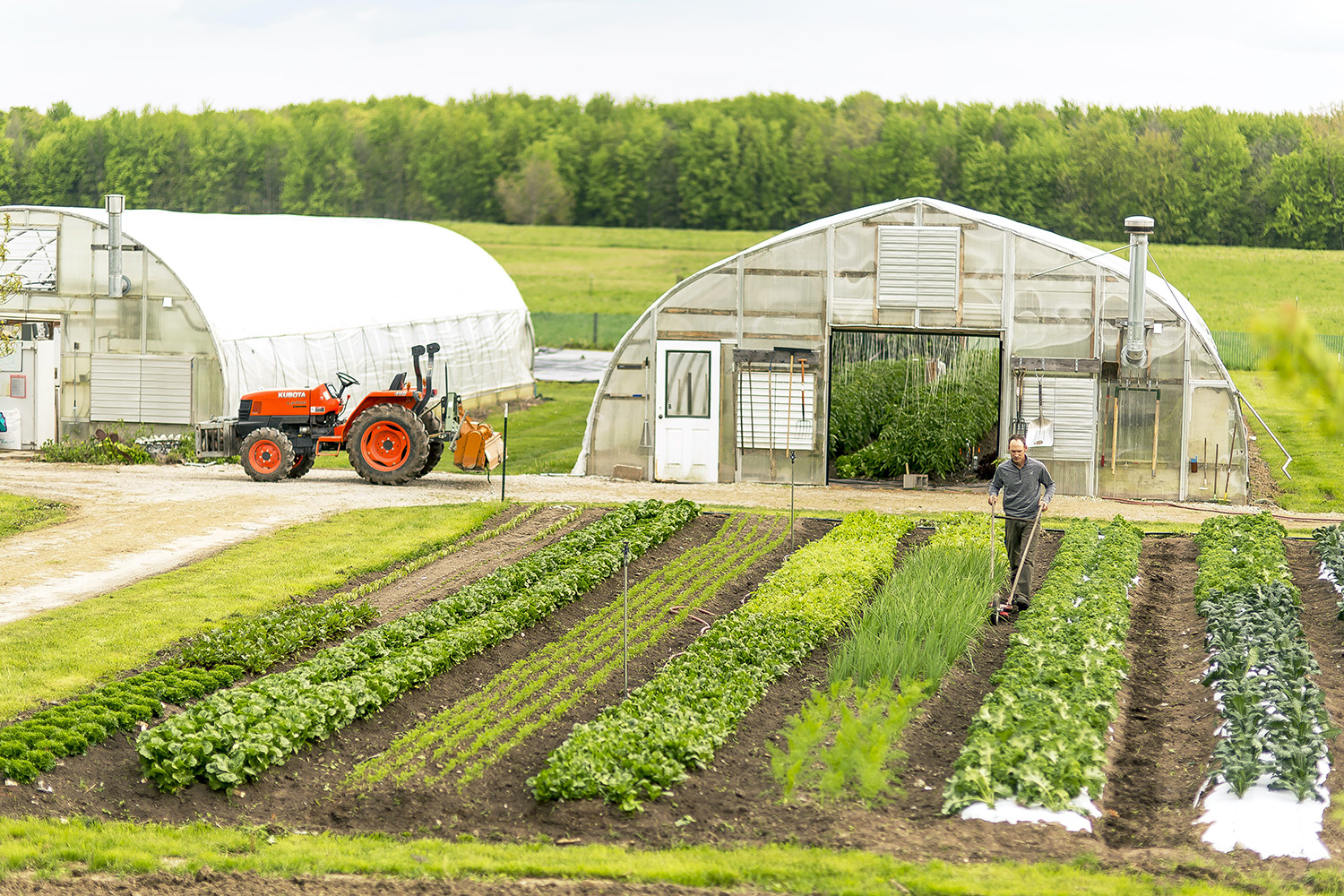
Within a week, they sold out of their 45 shares.
“It’s a safe, convenient way for people to get nutrient-dense food during a pandemic. And we probably could have sold three or four times as many CSA shares,” Hartman said.
The two both have roots in more traditional farming.
Hartman grew up on a 450-acre corn and soy bean farm. Hershberger lived in town, but her family had an extensive garden and canned its own vegetables. The couple met while attending Goshen college, got married and thought they would try farming for a few years to see how it would go.
“Long story short, we haven’t quit,” Hartman said. “This is our 15th growing season.”
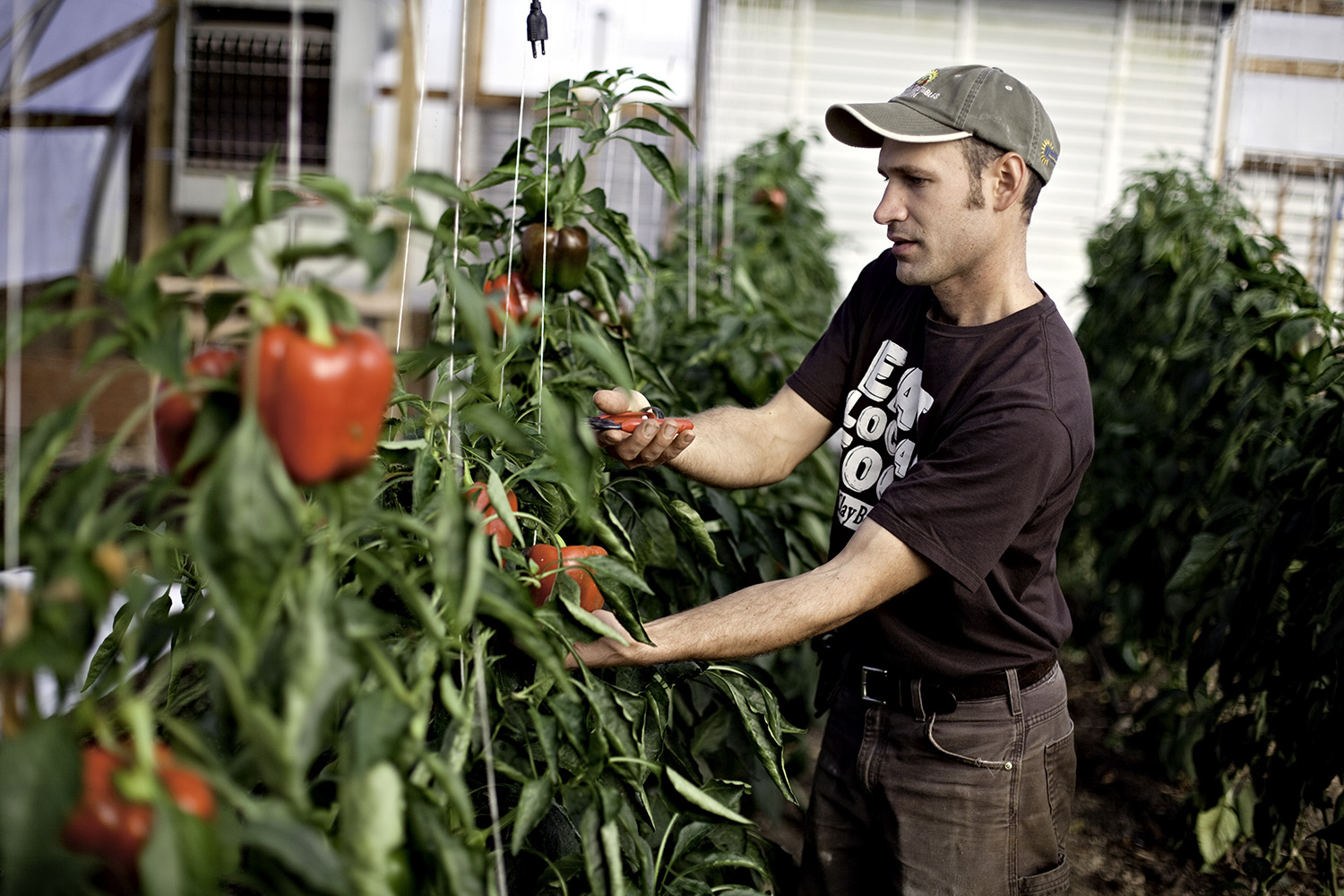
They started out using traditional farming techniques on a 5-acre produce and specialty crop farm, with the goal of renting another 5 acres the following year.
“Eventually my goal was to get to 20 or 50 acres, and then we’d be ‘real’ farmers,” Hartman said.
They began growing as much as they could and adding a new greenhouse every growing season, but that approach just wasn’t working. They were burned out from working long hours with too little focus.
Then Hartman received an email from a CSA customer, Steve Brenneman, who offered to give the couple free coaching sessions in lean farming.
“A light bulb went off. We immediately threw the train in reverse and went the other direction,” Hartman said. “We went from 5 acres to the next growing season, 4 acres. Then to 3, to at this point we make our living on less than 1 acre in production.
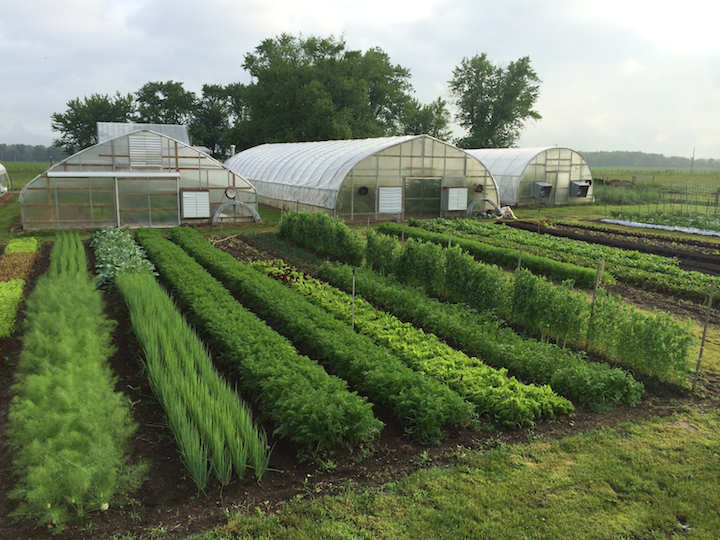
“We are earning more and working less than we ever have. We are using fewer than half the tools we used to use.”
Lean is a technique most often associated with industrial businesses or factories to streamline production environments and make them as efficient as possible.
“The basic approach with lean is to root out your waste, so that you can earn more money with less work and have a more sustainable business at the same time,” said Hartman.
Hartman said the traditional mindset in farming is that you have to get bigger every year to stay in business, to offset falling crop prices.
“Lean suggests there’s another approach. You can focus on value and how can you increase value and at the same time cut out your waste. That’s another way to grow a business without having to get bigger all the time,” he said.
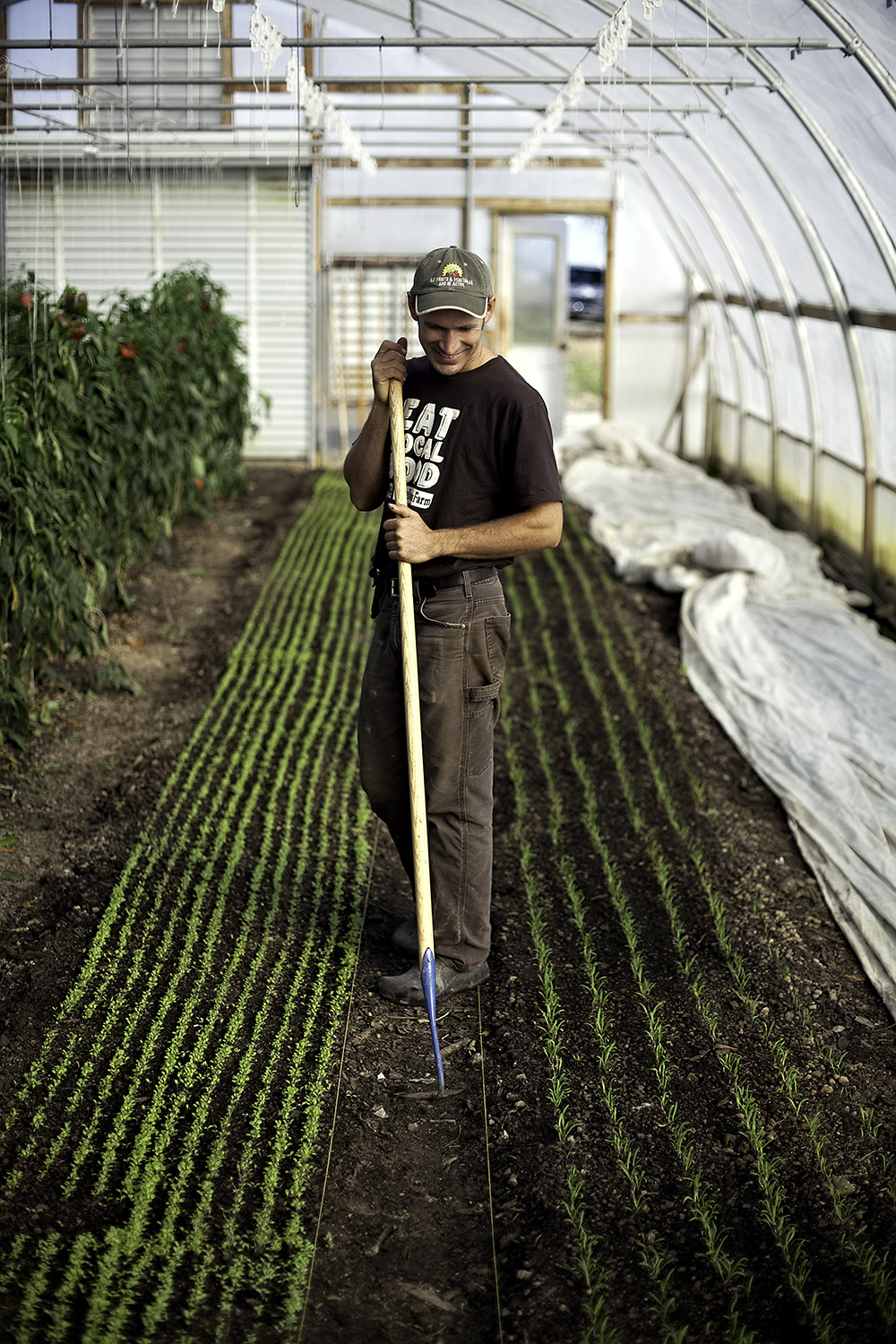
Ideas in lean farming in America go back to Black farmers in the 1800s.
“These were farmers who because of racist policies didn’t have access to capital, didn’t have access to land, the same access to land that their white counterparts had,” Hartman said. “They had to be lean if they were going to survive, and so they developed very efficient farming methods and promoted this idea that you root out your waste as the way to grow your business, because they didn’t have the option of constant expansion and constant capitalization to grow their businesses.”
To keep their CSA business lean, Hartman and Hershberger restrict produce delivery and fertilizer materials collection to less than a mile and a half away from the farm, minimizing vehicle emissions and environmental impact.
“We are inside city limits, so that means what we use is a lot of leaves and grass clippings, yard waste that would otherwise end up in the landfill, and we are sinking that carbon into our soils and growing food with it,” said Hartman.
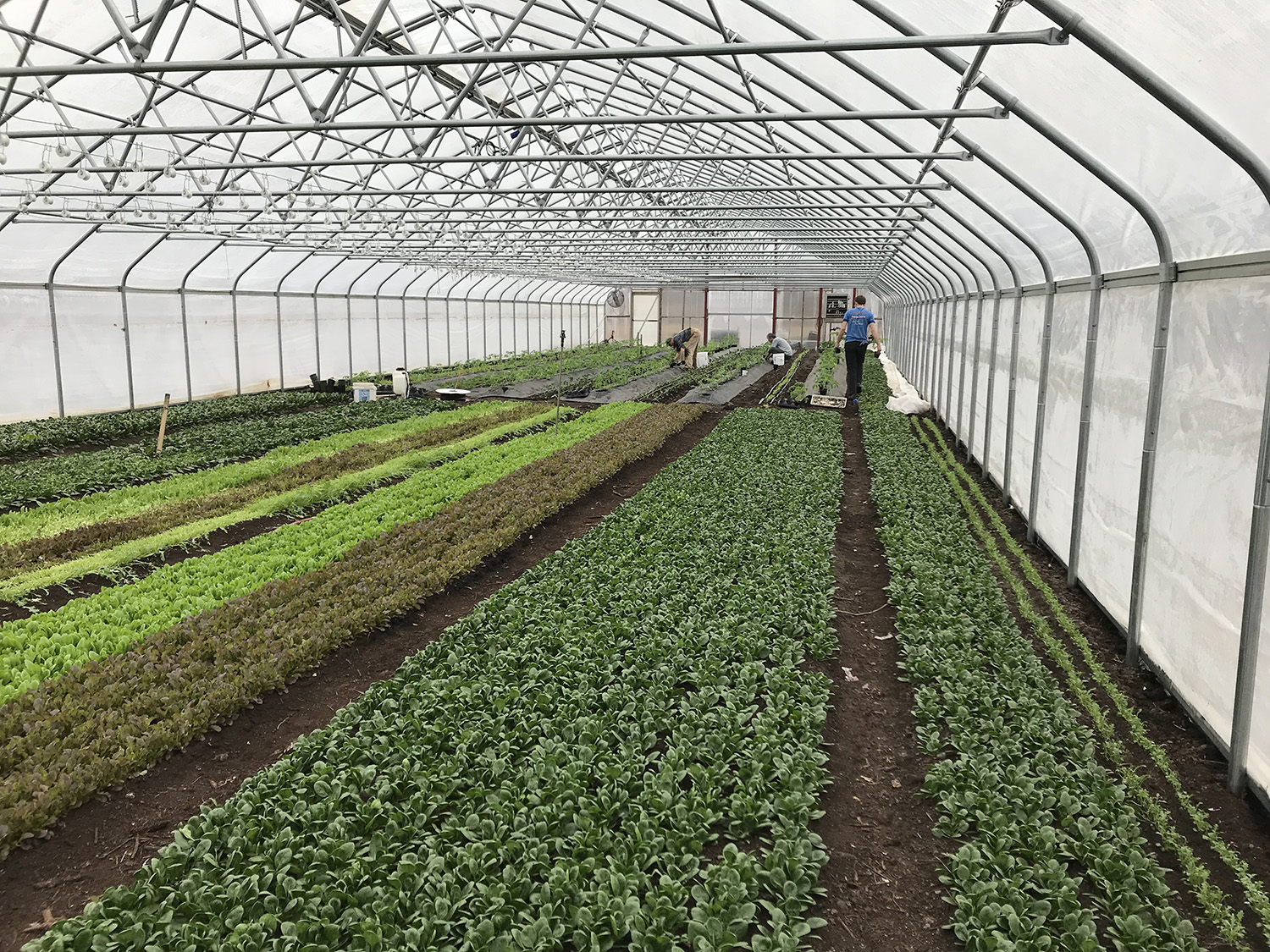
He said farmers could be part of the solution to climate change with the proper policies.
“We need to incentivize through our policy good land stewardship. Incentivize practices that build organic matter in our soils. Incentivize farming methods that don’t pollute. Right now, it’s just the opposite,” he said.
Hartman and Hershberger are also among the first farmers in northern Indiana to grow hemp and produce CBD oil products. They began hemp production because of customer interest.
“People want hemp and CBD products grown and produced in ways that they trust,” said Hartman.
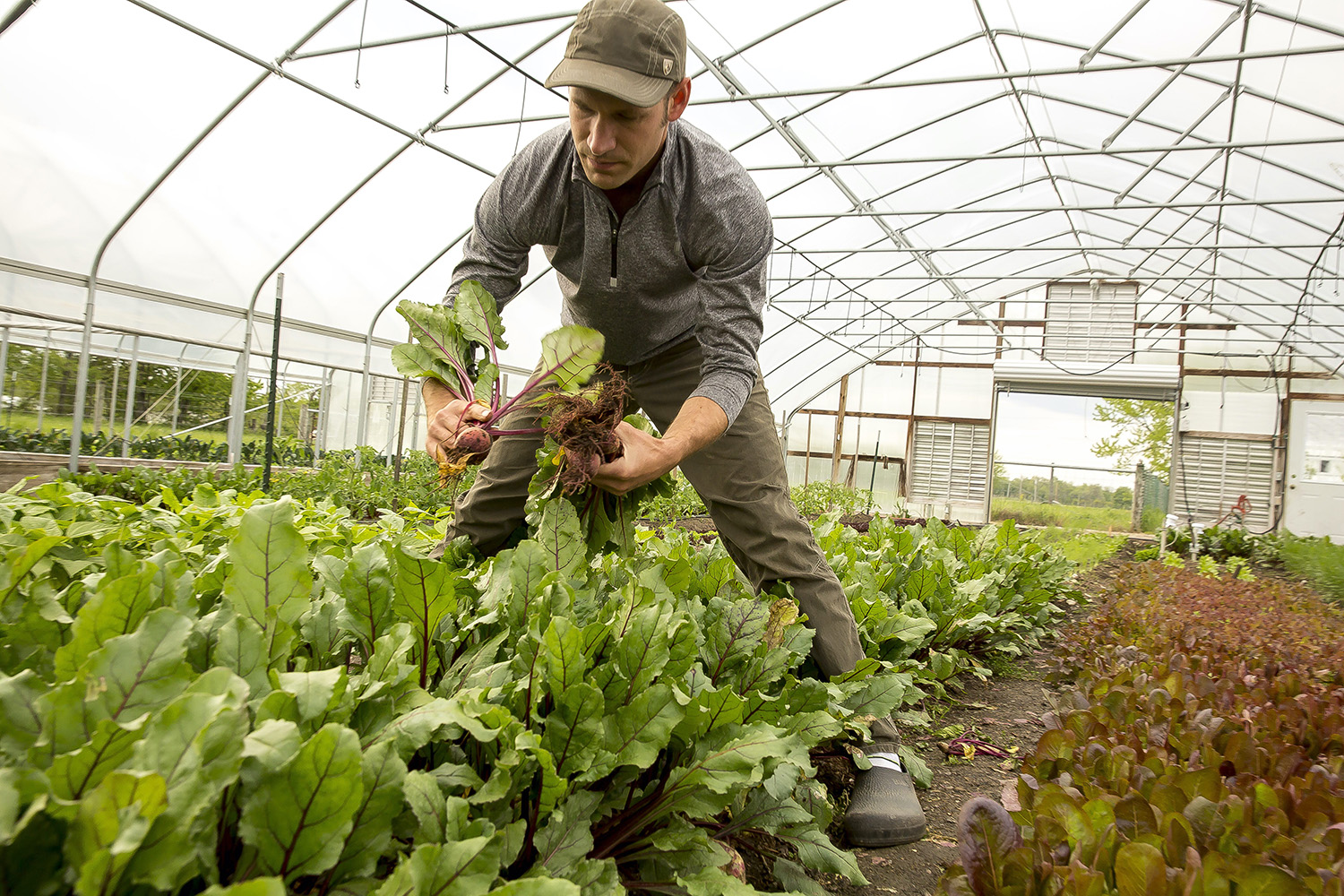
They sell their products at two local markets and the Goshen Farmers Market. Their goal is to help support the local economy and food supply chains.
Hartman is also a senior consultant with USAID for agriculture projects, and he says the food system is starting to change due to COVID-19.
“We are starting to see that transformation happen, and it’s a very exciting time to be in agriculture,” he said. “The pre-COVID system simply wasn’t working. It’s time for it to change, and there are a lot of creative policy proposals on the table right now to make sure that changes the way that’s better for black and brown people, it’s better for the environment and it’s better for farmers too.”
Hartman has written two books about his and his wife’s transition in farming, The Lean Farm and The Lean Farm Guide to Growing Vegetables.